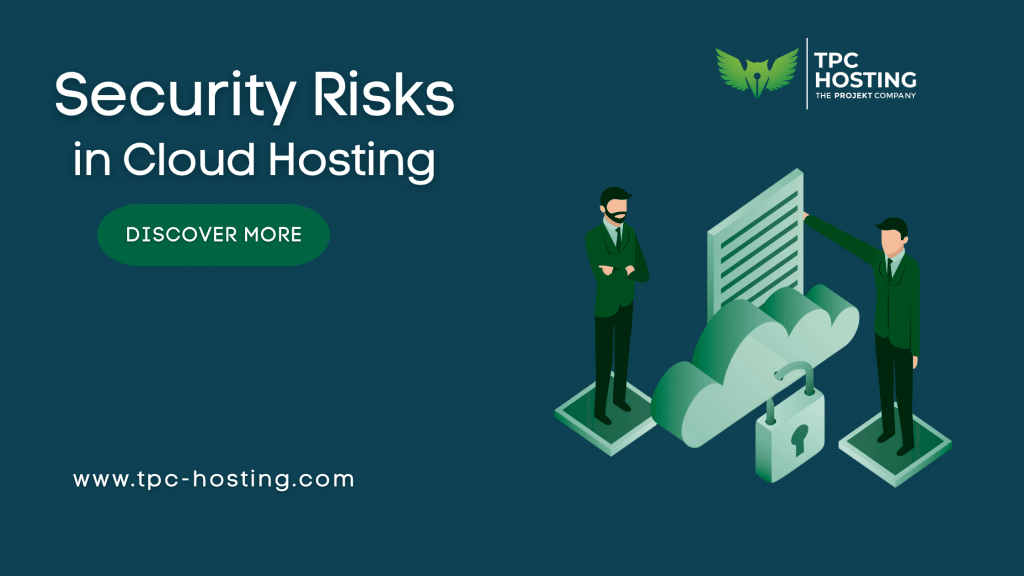
How To Resolve Security Challenges in Cloud Hosting
Cloud web hosting has revolutionised the way businesses operate, offering flexibility, scalability, and cost-effectiveness. It’s become a pillar for many organisations, providing the necessary infrastructure to host websites and applications. However, with its increasing adoption, the need to ensure robust security measures is more critical than ever. As businesses rely on cloud solutions for their operations, they must be vigilant about identifying and addressing security vulnerabilities that could compromise their data and services.
In Romania, a country rapidly developing its digital capabilities, the emphasis on cybersecurity has never been higher. As the digital infrastructure grows, so does the potential risk of security threats. Understanding and addressing these vulnerabilities is crucial not just for safeguarding sensitive information but also for maintaining the trust and reliability that customers expect. This discussion will explore the common security challenges in cloud web hosting and offer a practical guide to not only identifying these vulnerabilities but also implementing effective solutions.
Common Security Vulnerabilities in Cloud Web Hosting
Navigating cloud web hosting environments comes with its unique set of security challenges. Misconfigurations and human errors are among the top security risks, as they can easily lead to unintentional exposure of sensitive data. A simple oversight, like failing to update access permissions or incorrectly setting security protocols, can create gaps for potential breaches. Such vulnerabilities demand constant attention to prevent accidental loss or theft of data.
Malware and viruses also pose significant threats. Cybercriminals continuously develop new forms of malicious software designed to exploit weaknesses within cloud systems. Whether through phishing scams or infected files, these attacks can infiltrate hosting environments and disrupt operations with severe consequences. Therefore, employing comprehensive malware detection and prevention strategies is essential in safeguarding cloud platforms.
Distributed Denial of Service (DDoS) attacks represent another major concern for cloud web hosting. These attacks flood a server with excessive traffic, causing downtime and affecting service availability. Ensuring that robust DDoS protection mechanisms are in place can help mitigate these types of threats, preserving the integrity and accessibility of services.
Implementing a proactive approach to cloud security involves recognising these vulnerabilities and understanding their potential impacts. Businesses must stay informed about the evolving threat landscape to anticipate and address these challenges effectively. By focusing on the most common vulnerabilities, companies can create a secure foundation for their cloud infrastructure.
Best Practices for Identifying Vulnerabilities
Identifying vulnerabilities in cloud hosting is a proactive measure that can significantly fortify your digital assets. One of the most effective strategies is conducting regular security audits. These audits provide a thorough evaluation of a system’s security status, uncovering any weaknesses before they can be exploited. By scheduling these audits consistently, businesses can stay ahead of potential threats and ensure their cloud environments remain secure.
Utilising automated security tools is another crucial practice. These tools can efficiently scan for vulnerabilities across your cloud infrastructure, providing real-time insights. They can detect issues such as outdated software versions, weak passwords, and unpatched systems, all of which can be potential entry points for attacks. Having automated systems in place allows for continuous monitoring, reducing the reliance on manual checks, which can be time-consuming and occasionally overlook crucial details.
Monitoring logs and alerts helps in creating an additional layer of security. Logs offer detailed records of activity within the cloud environment, making it easier to spot unusual behaviour. Alerts notify administrators of any suspicious activities or anomalies, allowing for swift responses to potential threats. By consistently reviewing these logs and configuring alerts, businesses can quickly identify and address issues, ensuring a robust defence against cyber threats.
Resolving Security Vulnerabilities
Once vulnerabilities are identified, swift actions must follow to resolve them effectively. Implementing strong access controls is a foundational step. This approach limits access to sensitive data and systems only to authorised users. By setting permissions judiciously and regularly reviewing who has access, businesses can mitigate the risk of insider threats and unauthorised access.
Keeping software updated and patched is another vital measure. Software vendors frequently release updates to patch security vulnerabilities, and by applying these updates promptly, businesses can protect themselves against known exploits. Neglecting to update software could leave critical systems exposed to attackers who constantly seek out outdated vulnerabilities to exploit.
Maintaining robust backup solutions ensures that data is protected from accidental loss or deliberate attacks. Regular backups offer a safety net, allowing businesses to restore their data quickly in the event of a breach or other compromising events. By implementing a robust backup strategy, organisations can recover swiftly, minimising downtime and reducing the overall impact of data loss incidents.
Future-Proofing Your Cloud Web Hosting Security
Looking ahead, embracing AI and machine learning technologies can play a pivotal role in future-proofing cloud security. These technologies help in predicting and identifying threats based on patterns, enabling businesses to take preventive actions before a threat becomes a serious issue. By integrating AI-driven solutions, companies can enhance their security posture and gain an edge over potential cyber adversaries.
Another effective strategy is investing in staff training. Educating employees about the latest security threats and the best practices to counter them empowers them to act as the first line of defence. Regular training sessions can significantly reduce the likelihood of human errors, one of the leading causes of security breaches. When staff members are well-informed, the organisation as a whole benefits from a vigilant and proactive security culture.
Finally, choosing a reliable cloud hosting provider that prioritises security can greatly enhance an organisation’s defence against cyber threats. A provider that offers comprehensive security features and round-the-clock support ensures that your hosting environment remains secure and resilient against an ever-changing threat landscape. By aligning with a provider committed to security, you can focus on growing your business without constantly worrying about potential vulnerabilities.
Securing your digital assets is a critical aspect of maintaining a competitive edge in Romania’s digital marketplace. By implementing thorough security measures and staying informed about the latest threats, you’re safeguarding not just your data but your business’s future as well. Discover more about how TPC Hosting can support your cloud web hosting needs with advanced security solutions and expertise. Trust us to provide reliable, secure hosting that keeps you focused on growth.









